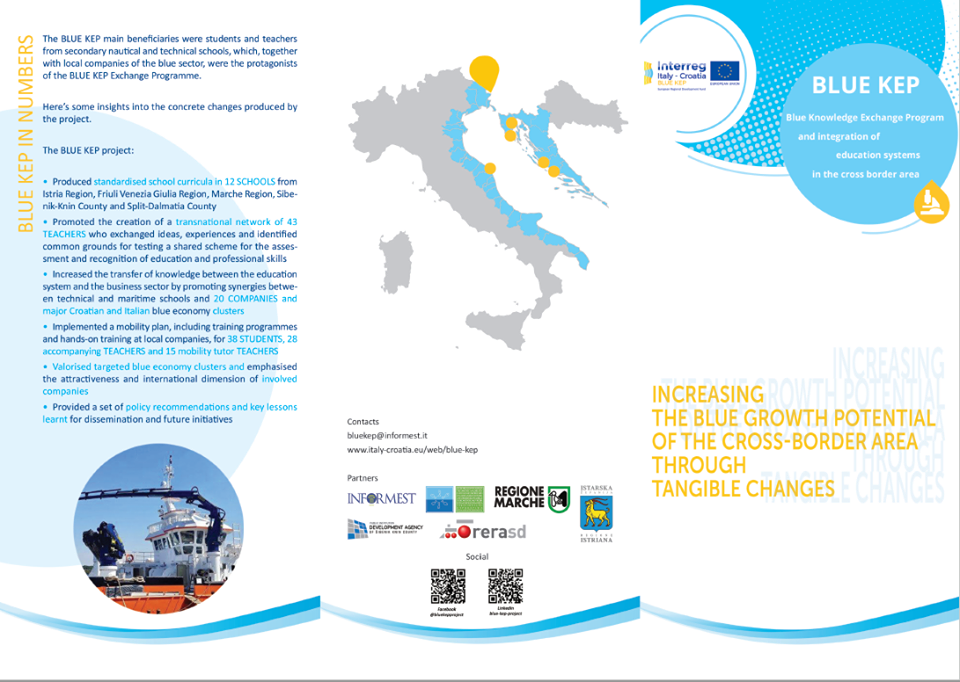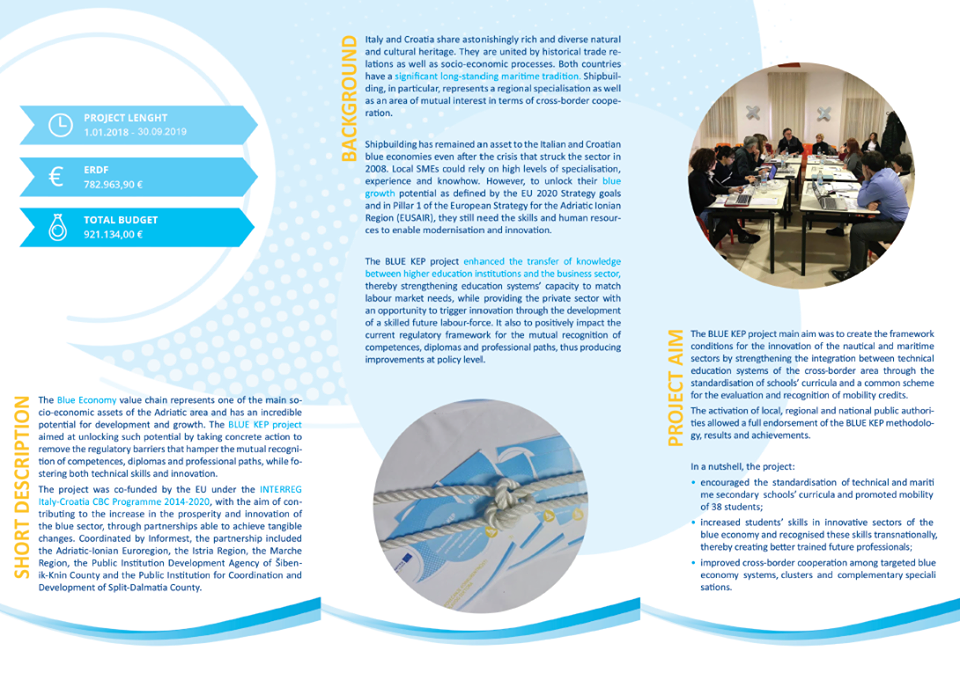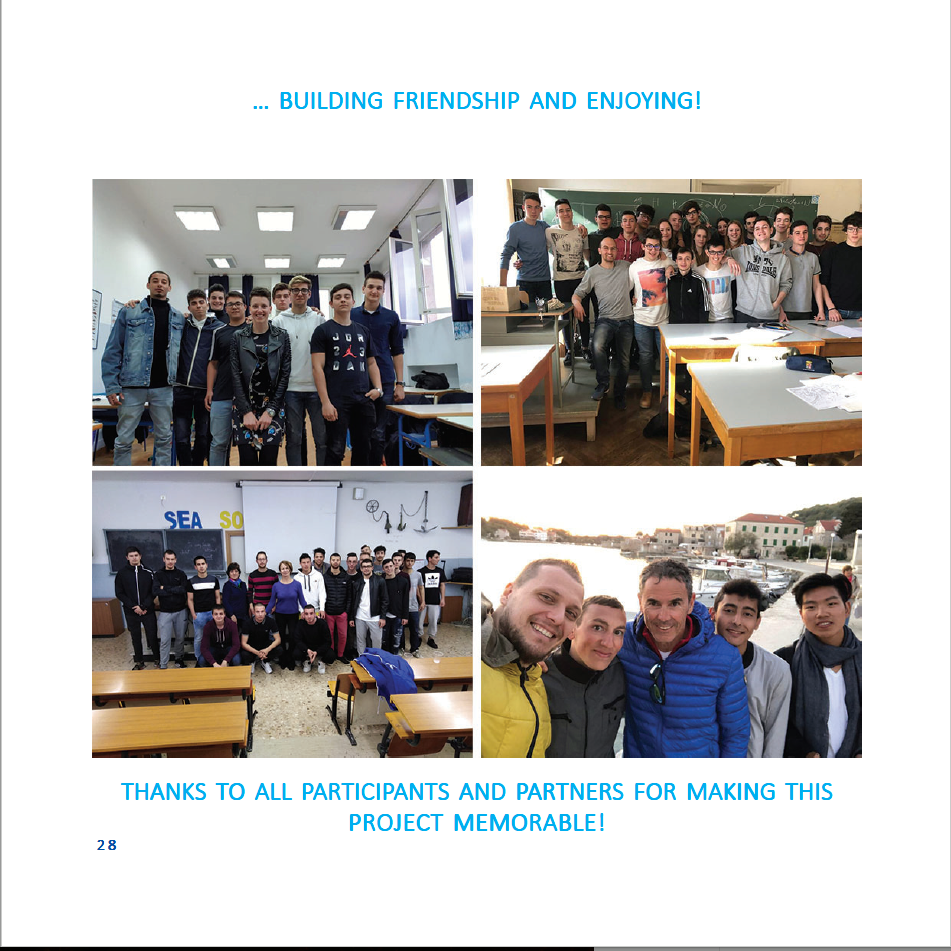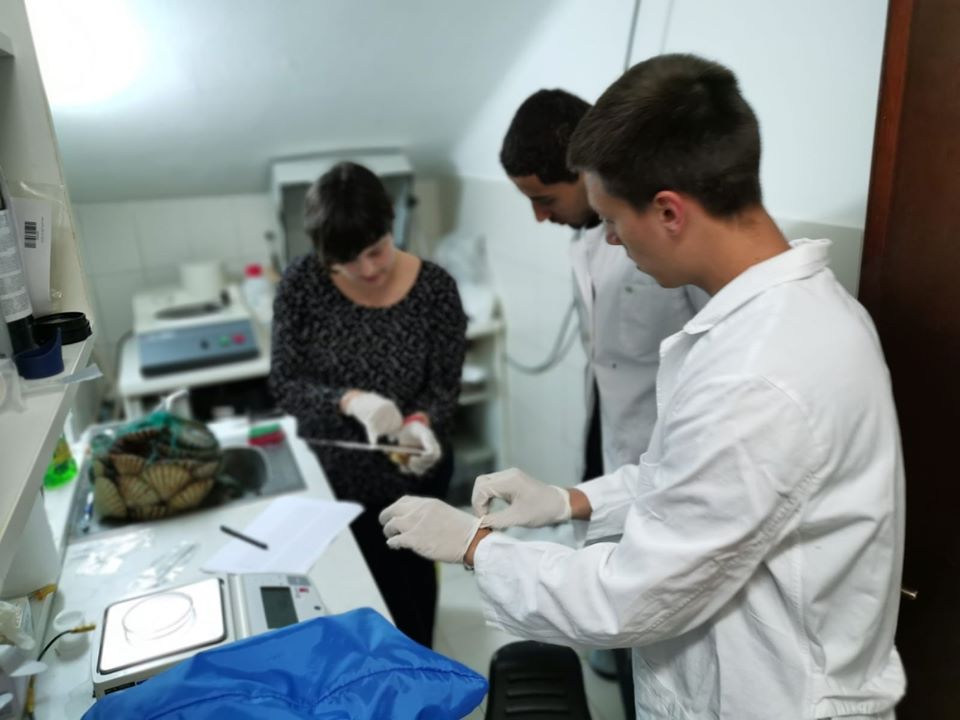The blue economy value chain has an incredible potential for the development and growth of the whole Adriatic area. The BLUE KEP project was aimed at unlocking such potential by taking a concrete step towards the harmonisation and integration of technical education systems via standardised school curricula and common methods for the recognition of skills. Its target-oriented approach and the strict cooperation among the involved actors were crucial to favouring the valorisation of cross-border clusters, while providing an opportunity of cultural exchange between technical education systems, as well as paving the way for a more structured «brain circulation» in the cross-border area.
With the project guidebook, the BLUE KEP project promotes the capitalisation of the project’s results and raises awareness about the role played by cross-border cooperation between higher education institutions, the public sector and enterprises in boosting the creation of innovative skills and in valorising maritime technical poles. Readers are provided with a comprehensive overview of the BLUKE KEP project, its initial goals, deliverables and main achievements as well as with policy recommendations and lessons learnt.
The BLUE KEP policy recommendations can be summarised as follows:
- Recommendation 1 – Favour a common action between schools facing the need for innovation and overcoming differences in schools’ curricula, overcoming differences in schools’ curricula starting from topics that characterise the Adriatic sociohistoric and economic common background.
- Recommendation 2 – Favour the mutual recognition of competences and diplomas
- Recommendation 3 – Further stimulate cross-border mobility programmes for students and teachers teachersteachers that enrich personal and cultural development and provide an added value to education and training paths.
- Recommendation 4 – Favour the development of professional skills as defined in the educational and cultural course of study, by promoting a joint developmen elopment of synergies and knowledge transfer between the business and the education sector between the business and the education sector through the implementation of the school-work alternation method.
By drawing upon project’s results, some guiding principles are pinpointed that can effectively enhance the framework conditions for the innovation of the blue sector based on the cooperation and integration of education systems within the cooperation area.
To learn more, download the attachement!






